The Champion #114 – Jan-Feb 2023
This issue:
- NSW Hep B Strategy launched with renewed drive to improve outcomes
- Program Officer, Aboriginal Community Engagement position recruiting at Hepatitis NSW
- s100 Co-payment Program and patient consent form expiry period extended
- Report concerned that Australia’s progress towards hep C elimination at risk
- Closing the Gap at YABUN 2023
- NSW Election candidates called on to outline LGBTIQ+ community commitments
- Hepatitis B Mothers and Babies now available in Mandarin

NSW Hep B Strategy launched with renewed drive to improve outcomes
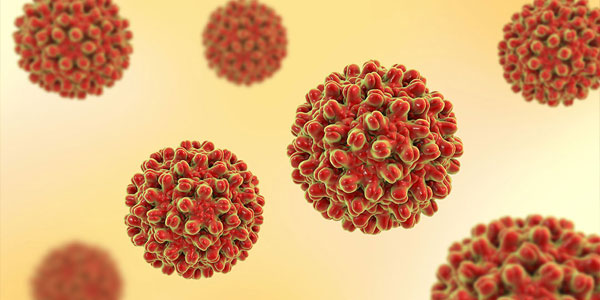
The new NSW Hepatitis B Strategy has been released creating a hugely welcome renewed drive to improve the health outcomes of people living with and affected by hep B in NSW.
In NSW we’re making encouraging steps in getting more and more people diagnosed with hep B, but we’ve got much more work to do in getting people living with hep B into regular monitoring and, where needed, starting treatment.
You’ll find us shouting it from the rooftops of the Hepatitis NSW office: the single most important thing with hep B is that every person living with the virus should get their six-monthly check up to stay healthy. That’s one of the many important hep B messages we’ll be getting out to our communities in 2023.
Some general figures to help understand the current landscape and the work ahead:
- There are 79,522 people in NSW living with hep B.
- Roughly 80%, or 63,000 people, have been diagnosed. However, “diagnosed” is a PHU (Public Health Unit) notification and does not mean the person has been informed they have hep B or, if so, that they know what that means.
- There are therefore roughly 16,000 people still to find to diagnose. Realistically, this is likely double or triple in terms of proper diagnosis and communication of what that means.
- There are theoretically 58,000 people who we need to reach about monitoring their hep B, some of whom will require treatment (that is, the total number minus the 10,866 people getting monitoring (HBV viral load test) and 10,895 people on treatment).
- While 13.7% of people living with hep B in NSW are on treatment, the target is 20%.
The Ministry has set ambitious targets for this strategy and it’s the work of many of us across NSW to see those targets realised so that we can prevent future cases of cirrhosis, liver failure, or liver cancer from undiagnosed, unmanaged, or untreated hep B in the community.
There’s lots of work to do in the hep B space but now, with a new and comprehensive strategy to work towards, 2023 is shaping up to be a defining year in the fight to eliminate hep B as a public health threat in Australia.
To access the NSW Hepatitis B Strategy >>>CLICK HERE
Program Officer, Aboriginal Community Engagement position recruiting at Hepatitis NSW
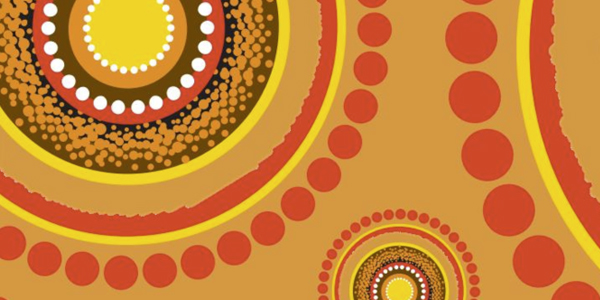
We are currently recruiting for a great position at Hepatitis NSW. Our vision is for “A World Free of Viral Hepatitis” and we provide information, support, referral, and advocacy for people affected by viral hepatitis in NSW. We work to prevent the transmission of hepatitis B and hepatitis C and to improve the health and well-being of affected people and communities. If that excites you, please check out the following position!
Program Officer – Aboriginal Community Engagement
Applications close 8 March 2023 | 5.00pm
The Program Officer – Aboriginal Community Engagement will lead, plan, deliver, and develop hepatitis B and hepatitis C outreach health promotion activities that engage Aboriginal communities across NSW.
As Aboriginal Program Officer you will:
- Contribute to activities that improve the health and wellbeing of Aboriginal people living with or at risk of hepatitis B and hepatitis C in NSW.
- Contribute to reducing stigma and discrimination experienced by Aboriginal people in relation to living with hepatitis B and hepatitis C.
- Build strong relationships and partnerships with key stakeholders to increase access to health services for Aboriginal people.
This is an Aboriginal identified position and is open to Aboriginal and/or Torres Strait Islander people only. Hepatitis NSW considers that being Aboriginal and/or Torres Strait Islander is a genuine occupational qualification under s 14 of the Anti-Discrimination Act 1977 (NSW).
The Job Pack can be downloaded >>> CLICK HERE
About Hepatitis NSW
- We are a member-based, health promotion charity funded by the NSW Ministry of Health.
- Hepatitis NSW is an incorporated association, governed by a Board made up of elected and appointed members.
- There are 17 permanent staff members, approximately 35 casual staff and volunteer workers.
- Learn more about us and what we do on our website>>> hep.org.au
Please circulate this opportunity amongst your networks.
s100 Co-payment Program and patient consent form expiry period extended

NSW Health pays patient co-payments for s100 drugs and medicines to help ease the financial burden for people with cancer and other chronic conditions. This includes medicines listed on the Pharmaceutical Benefits Scheme (PBS) under the s100 Highly Specialised Drugs Program.
In response to feedback received from consumers, the patient consent form expiry period has been extended to three years. From 1 January 2023, the 3-year Patient Consent Form for s100 can be used, replacing the previous 12-month patient consent form.
Existing 12-month patient consent forms can continue to be used and remain valid until their renewal period expires. It is hoped that extending the consent form renewal period to three years will reduce administrative burden and improve patient and clinician experience.
Eligible patients should ensure the 3-year Patient Consent Form is completed by their prescriber as their existing form nears the renewal date. Patients will need to sign and present the 3-year Patient Consent Form each time a prescription is filled, including repeats, at a NSW public hospital pharmacy or NSW community pharmacy.
Hepatitis NSW welcomes the ongoing initiative and its incorporation into NSW Health recurrent expenditure. This is an important system for ensuring equity and access to essential treatment medication. Hepatitis B treatment Entecavir is in the top three medications dispensed by community pharmacies and this update to the s100 Co-payment Program better ensures better treatment continuity.
- For more information about eligibility, consent and privacy of health information, please visit the s100 Co-payment Program website >>>CLICK HERE.
Report concerned that Australia’s progress towards hep C elimination at risk
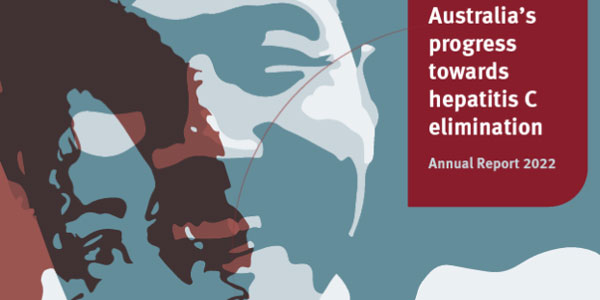
A report released by the Burnet Institute and Kirby Institute shows that new models of care, and more investment, are urgently needed to reach people at risk of, or living with, hep C, and to engage people lost to care. The Report concludes that, without these actions, Australia risks falling short of its goal to eliminate hep C as a public health threat by 2030 and save lives.
Key findings of the 2022 Annual Report, Australia’s progress towards hepatitis C elimination, show:
- the rate of new hep C infections in Australia has declined since 2016 when highly effective direct acting antiviral (DAA) treatments became available, and
- more than 95,000 people were treated with DAAs between 2016 and 2021.
However, the report also reveals declines in testing and in the number of people treated each year. This leaves an estimated 117,800 Australians still living with hep C at the end of 2020 and at serious risk of liver disease, cancer, and premature death. While there has been success over the last five years, the report urges that the approaches which have underpinned that are no longer sufficient to achieve elimination.
The Report calls for a need to innovate models of care, with hard work required to ensure we reach the remaining Australians living with hep C that are yet to be treated. For example, models of care should better integrate hep C care into alcohol and other drug treatment services, including opioid agonist therapy and NSPs (needle and syringe programs), and adapting primary care services to make sure they reach people with or at risk of hepatitis C.
“The national initiative to implement point-of-care hepatitis C testing in community and prison settings should provide impetus to enhanced screening and rapid linkage to treatment, key requirements to re-invigorate the hepatitis C elimination efforts,” said Professor Greg Dore, Head of the Viral Hepatitis Clinical Research Program at the Kirby Institute, UNSW Sydney
Professor Mark Stoové, Burnet Institute Head of Public Health, said, “Maximising the use of current surveillance systems can also help to find people previously diagnosed who have been lost to care. There’s a lot of goodwill in the sector in terms of how we can work together more smartly in the delivery of services, but we need to invest in new models of care that can accelerate our progress towards elimination”.
The Report concludes that it’s critical we don’t squander the opportunity that has been provided by the DAAs.
- Download: Australia’s progress towards hepatitis C elimination >>>CLICK HERE
- Read original Kirby Institute Media Release >>>CLICK HERE
Closing the Gap at YABUN 2023
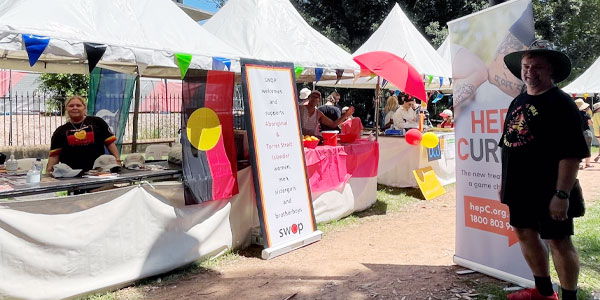
Hepatitis NSW at YABUN 2022YABUN is a one-of-a-kind event that honours the survival of the world’s oldest living culture. It’s held annually in recognition of Aboriginal and Torres Strait Islander cultures in Australia on 26 January, upon the traditional lands of the Gadigal people in Sydney, at Camperdown’s Victoria Park.
Hepatitis NSW, along with other 414 Close the Gap partners – SWOP and Positive Life – shared a stall at YABUN 2023.
The Festival features live music, a bustling stalls market, panel discussions and community forums on Aboriginal issues, children’s activities, and traditional Aboriginal and Torres Strait Islander cultural performances. The stalls market includes a wide range of food and merchandise, as well as stalls operated by community organisations promoting services and information.
The event gave us the chance to meet, talk and share information about hepatitis C and hepatitis B with both Aboriginal and non-Aboriginal people at YABUN. Hepatitis NSW staff and volunteers were able to connect with other community organisations and health stall holders, allowing for promotion of Hepatitis NSW resources and health promotion services. Our hundred or so give-away bags proved so popular, everything was gone before noon – necessitating a restocking run to the office.
NSW Election candidates called on to outline LGBTIQ+ community commitments
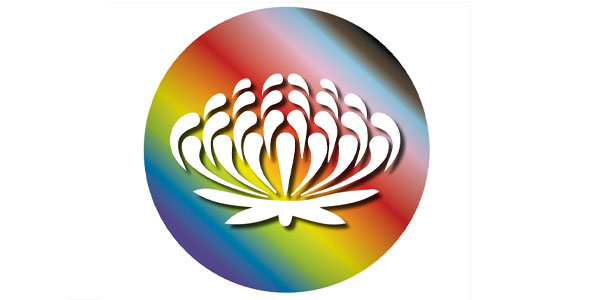
A coalition of organisations dedicated to the health and human rights of sexuality and gender diverse communities has released an election questionnaire for the major parties and independents, canvassing their positions on key issues affecting LGBTIQ+ communities, including those affected by hep B and/or hep C, ahead of the NSW state election.
The NSW Election 2023: Candidates Questionnaire outlines 39 commitments to improve the health, human rights, and safety of people in LGBTIQ+ communities. Hepatitis NSW was part of the development process, along with ACON, BlaQ Aboriginal Corporation, Equality Australia, NSW Gay and Lesbian Rights Lobby, Sex Workers Outreach Project (SWOP), Positive Life NSW, HIV/AIDS Legal Centre (HALC), and Twenty10.
All major parties and independents have been asked to complete the survey by early March 2023, after which the result will be publicly available.
The questionnaire invites all major parties and independents to commit to the key pillars of current NSW health strategies including LGBTIQ+ health, HIV, hep B and hep C, blood borne viruses and STIs, as well as to the future of community organisations in NSW, and law reform in areas that disproportionately affect our communities.
Guaranteeing appropriate inflation-linked indexation is essential to our quest to eliminate hep B and hep C as a public health concern in NSW. We can’t develop and deliver programs to expand our reach into our communities while losing income year-on-year. The point where you do more with less passed a long, long time ago. New investments in proven, successful initiatives such as peer programs is essential. Hepatitis NSW’s Peer Partnership Program has recently achieved the milestone of more than 10,000 engagements with people on the issue of hep C. With more support and funding, we can reach more people in more places and realise our goal of a world free of viral hepatitis.
These commitments cross the political landscape, as these issues affect many groups within our communities, including trans people, Aboriginal and Torres Strait Islanders, multicultural communities, older people, women and sex workers, and also touches on matters relating to regional health, mental health, sexual, domestic and family violence, housing, justice and others.
We call on the major parties and independents to publicly demonstrate their commitment to people of diverse sexualities and gender identities in NSW by completing the questionnaire.
- View the NSW Election 2023: Candidates Questionnaire >>>CLICK HERE
Hepatitis B Mothers and Babies now available in Mandarin
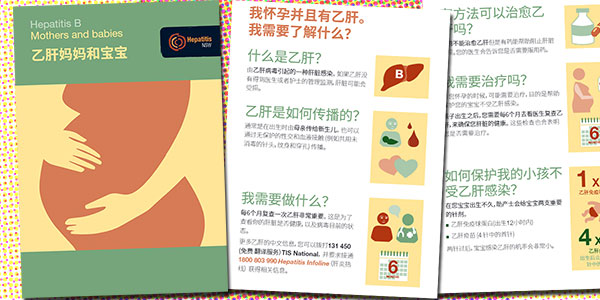
One of our most successful and popular hep B resources – Mothers and Babies, an easy read brochure for pregnant women diagnosed with hep B during antenatal screening – is now available in Mandarin.
Hep B diagnosis can be stressful for mums, and this resource helps to ease that with reassuring info given in a confidential, non-judgmental and friendly format. This is an ideal resource for midwives to make available to mums-to-be.
Issues covered include:
- What is hep B, how is it passed on, and treatment options
- How to protect your baby through hep B immunoglobulin and hep B vaccination
- Can I breastfeed my baby; and much more!
While one in every hundred people in NSW currently live with hepatitis B, the number is higher within many communities, including people originally from China. One of the most common means of transmission of hepatitis B is from mothers to babies at birth. Many do not know they have the virus or, if they do, are unaware of the need for regular monitoring to maintain good health.
There are many misconceptions about hepatitis B – including transmission and treatment – which in turn has resulted in stigma and barriers to appropriate care. Hepatitis B Mothers and Babies is one part of Hepatitis NSW’s ongoing work in community engagement around hep B and efforts to increase knowledge and testing, and to reduce stigma.
More information: Jessica [email protected]
- Read online: Hepatitis B Mothers and Babies [Mandarin] >>>CLICK HERE
- Order: Hepatitis B Mothers and Babies [Easy-Read English] >>>CLICK HERE





